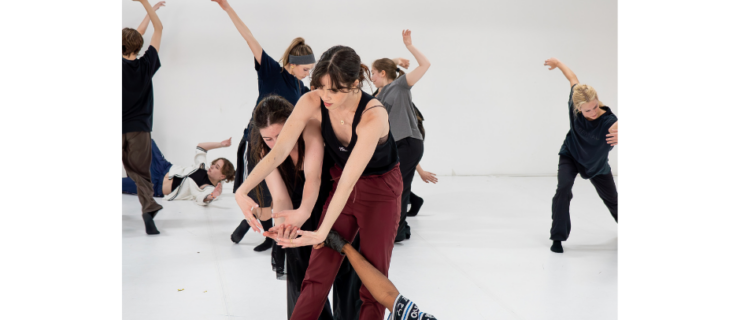The Generation Lost to AIDS
August 21, 2007
Dancers, in the pursuit of the joy of dance, undergo a hailstorm of hardships: bodily injuries, scrawny salaries, and a cruelly short career span. But no one could have foretold the medical nightmare that raged during the last two decades of the 20th century, when AIDS assaulted the dance community. For those too young to remember, hardly a day went by when studios and theaters weren’t haunted by whispered stories of dancers succumbing to AIDS-related pneumonia, brain tumors, or a deadly lymphoma. Friends vanished so quickly that mourning was equated with numbness.
More than 25 million people—an inconceivable figure—have died from AIDS-related causes since 1981. Thousands of those were artists who contributed something distinct to the quality of our lives. And among those were the dancers, choreographers, teachers, and so many others who were invaluable to the field.
The names are too numerous to call, but it is incumbent upon all of us to never forget the impact of AIDS, how we reeled in its wake, and what might have been.
• How many more brilliant Broadway shows would we have seen from Michael Bennett, the genius behind A Chorus Line and Dreamgirls? What other golden nuggets from a past era, like Leonide Massine’s Parade or Kurt Jooss’ The Green Table, would Robert Joffrey have excavated? What bravely original choreographers would he have given the chance to experiment, the way he did for Twyla Tharp?
• If the powerhouse dancer Christopher Gillis had lived, how would he have assisted Paul Taylor in shaping his company, possibly taking it into the future, as Taylor had wished? Likewise, how would Chris Komar, who dedicated his career to Merce Cunningham, have continued helping his mentor? At 23, Joffrey dancer Edward Stierle had hardly peaked as a dancer and budding choreographer—and Joffrey himself had wanted Stierle to carry the company’s banner one day. One can only wonder.
• Would Arnie Zane still urge us to remember that everything we do, dance, think, and say is political? I think so.
• Would Ulysses Dove have delivered more heavenly works like Red Angels, and would Louis Falco have developed his refined sassiness to maturity?
• What would Alvin Ailey be creating in a studio right now?
• Would Rudolf Nureyev have remained the brilliant diva that championed younger dancers and hypnotized people with the power of dance?
• Would Jorge Donn have continued directing and teaching with the flair he brought to his career with Béjart?
• Where would Michael Peters’ imagination, which took music videos to new heights with his choreography for the 15-minute Thriller, have led him?
• From Emile Ardolino, whose directorial vision brought Dance in America to television and Dirty Dancing to the big screen, would we have seen even more brilliant camera work?
• Would ABT dancers like Clark Tippet and Peter Fonseca have continued channeling their boldly unique styles into choreographing and directing?
• Nearly every company was hit hard: Tom Ruud of San Francisco Ballet, Gregory Huffman of the Joffrey Ballet, Tim Wengerd of the Martha Graham Dance Company, Jon Mensinger of the Mark Morris Dance Group, Aaron Osborne of the Limón Dance Company, Christopher Boatwright of the Stuttgart Ballet, Demian Acquavella of the Bill T. Jones/Arnie Zane Dance Company, Larry Grenier of the Twyla Tharp Dance Company, Ian Horvath of the Cleveland Ballet, Paul Russell of Dance Theatre of Harlem, Arthur Armijo of Susan Marshall & Company, and Harry Sheppard of Yoshiko Chuma and the School of Hard Knocks.
• And what about the local dance teachers and directors who seemed to disappear overnight, their cause of death obscured by fear of scandal?
• What have we lost from a generation hit by a tsunami-like plague? We’ll never really know.
• What have we learned from this tragedy? Hopefully to demonstrate more compassion towards others, to never judge anyone for a disease, to never be complacent about health issues, to appreciate the wisdom of those who are here with us now. And to develop the vigilance to never allow the ambush of something like AIDS to decimate our ranks on our watch.




